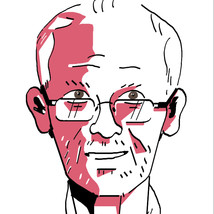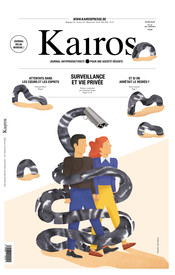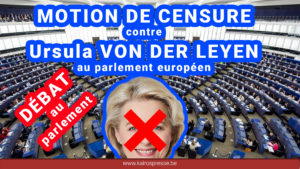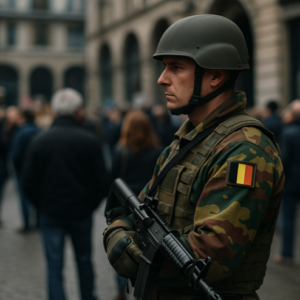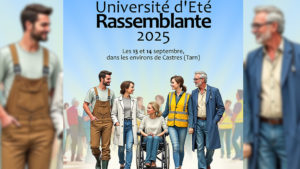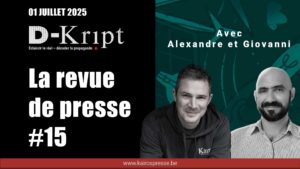Chacun de nous sait, pour l’avoir entendu de nombreuses fois, qu’on n’arrête pas le progrès. Cet adage reflète, à n’en pas douter, le bon sens populaire. Soit il traduit une admiration amusée face à une découverte inattendue, soit il exprime le fatalisme de ceux à qui s’impose une innovation technologique non souhaitée. Depuis que l’évolution des technologies ne fait plus l’unanimité, il est aussi utilisé pour disqualifier toute voix critique à l’égard de choix contestables.
Au nom du progrès en effet, il convient de taire ou de minimiser les éventuelles nuisances écologiques et sociales, de nier les atteintes à la dignité humaine et les menaces à l’égard des libertés fondamentales. Au nom du progrès, il nous faudrait nous soumettre à une évolution technologique inéluctable et nécessairement bénéfique pour autant que le marché la cautionne.
Je soumets à l’appréciation de tous quelques innovations récentes prétendument porteuses de progrès.
1. Depuis une dizaine d’années, les nanotechnologies sont présentées comme une voie parmi les plus prometteuses pour notre futur. Manipuler la matière atome par atome et recréer le monde qui nous entoure à partir du niveau atomique permettrait d’améliorer bon nombre de processus de fabrication et de mettre sur le marché des produits plus performants, plus pratiques en utilisant moins de matières premières. Un exemple : les vêtements. Si l’étiquette annonce des fonctions prometteuses comme « autonettoyant » « antibactérien », « antifongique », cela signifie que des nanoparticules d’argent ont été incorporées au tissu. Le nanoargent présente en effet des propriétés antibactériennes incontestables. Le problème est que cette vertu s’accompagne de quelques défauts gênants: les nanoparticules d’argent sont toxiques pour les cellules mammifères et pour les cellules germinales; dans l’environnement, elles détruisent les bactéries dénitrifiantes du sol. Ce qui est vrai pour les nanoparticules d’argent l’est malheureusement pour les nanoparticules en général: du fait de leur taille réduite, elles présentent une toxicité inédite:
- les organismes vivants ne disposent d’aucun mécanisme de protection spécifique;
- toutes les études indiquent que les nanoparticules peuvent affecter les comportements biologiques aux niveaux cellulaire, subcellulaire et protéinique ;
- la plupart des nanoparticules traversent aisément l’organisme, se déposent dans des organes cibles, pénètrent les membranes cellulaires et peuvent déclencher des réactions néfastes;
- elles traversent notamment les barrières biologiques essentielles que sont la barrière hématoencéphalique et le placenta.
En fait, on peut affirmer que les connaissances relatives à l’impact sur le vivant des nanomatériaux sont très largement à la traîne par rapport à leur commercialisation. Au nom du progrès, le 7ème programme-cadre européen pour la recherche 2007–2013 a attribué 7 milliards et demi d’euros aux nanosciences et aux nanotechnologies. 1% est consacré aux aspects sécurité-santé-environnement: il n’est pas question de freiner le progrès …
2. Depuis le début de l’année 2014, la multinationale Facebook inclut la congélation des ovocytes dans l’assurance-santé offerte à ses employées. La procédure de congélation est couverte à concurrence de 20.000 dollars, avec ajout annuel de 500 dollars pour la conservation. Ainsi, les cadres peuvent différer leur maternité et ne pas compromettre leur carrière. Les néo-féministes peuvent se réjouir: les femmes prennent le pouvoir sur leur calendrier de vie. Elles permettent surtout aux entreprises de ne pas compromettre leurs gains de productivité. On appréciera comme il se doit cette avancée technologique dans le processus d’artificialisation du vivant et de soumission aux intérêts économiques.
3. En juillet 2015, un accord a été signé entre Proximus, l’ULB, la VUB et le géant chinois de la téléphonie Huawei pour installer un « campus du futur» doté de la 5G sur les sites des deux universités bruxelloises.
La 5 G est une technologie de télécommunication qui promet des débits de l’ordre de 10 milliards de bits par seconde, soit près de 100 fois ce qu’offre la 4G actuelle. Selon ses promoteurs, la 5G devrait d’ici 2020 prendre en charge un trafic de données par téléphone multiplié par 1000. A signaler que, en 2014, la Commission européenne a libéré 700 millions d’euros pour le développement de la 5G.
La 5G a pour objectif premier de prendre en charge l’internet des objets : voitures, frigos, ascenseurs, montres, bracelets de santé, pacemakers, … soit une jungle de dispositifs interconnectés pour plus de commodité et de sécurité. Selon les prévisions des experts, il y aura en 2020 entre 50 et 200 milliards d’objets connectés sur la planète … Selon les experts, le déploiement de la 5G exigera une densification importante du réseau avec plus d’antennes-relais et plus de puissance. Les valeurs-limites d’exposition aux champs électromagnétiques devront être réévaluées à la hausse … alors que celles qui sont en vigueur doivent être considérées comme nettement trop élevées eu égard aux nuisances provoquées par les micro-ondes pulsées de la téléphonie mobile. On peut raisonnablement penser que le smog électromagnétique risque de conduire à une explosion de cas d’électro-hypersensibilité qui affectent déjà 3 à 5% des Européens.
Mais, en outre, il importe de s’interroger sur la sécurité du système. Le rapport sur le crime en ligne publié par Europol (l’officier européen des polices) en 2014 (The Internet Organised Crime Threat Assessment 2014) aborde le thème de la mort par l’Internet des objets. Le 4ème chapitre, intitulé « Le futur est déjà là » lance une mise en garde de nature à inquiéter les plus sereins: « Avec la multiplication des objets connectés à Internet, nous devons nous attendre à un nombre croissant d’attaques contre des infrastructures existantes et émergentes, ainsi qu’à de nouvelles formes de chantage et d’extorsion. Parmi les risques, il y a bien sûr le vol des données mais également les blessures, voire la mort.»
A l’heure de la multiplication des actes terroristes, il est légitime de penser que l’Internet des objets n’améliorera pas notre sécurité mais contribuera plutôt à la compromettre. Lors de la signature de l’accord sur la 5G à Bruxelles, le ministre-président de la Région, Rudi Vervoort, l’a salué comme un « beau défi pour Bruxelles qui verra se dessiner le futur immédiat du progrès technologique.»
Progrès technologique peut-être mais progrès pour l’humanité, c’est pour le moins contestable. S’interroger sur l’impact sociétal de l’innovation technologique me paraît de plus en plus indispensable dès lors qu’elle est susceptible de menacer non seulement notre milieu et nos conditions de vie mais aussi nos valeurs fondamentales et notre dignité d’êtres humains.
L’idéologie «technologiste» qui confond innovation technologique et progrès mérite d’être interrogée quant à ses fondements. Le fait qu’elle imprègne profondément le monde occidental se retrouve d’ailleurs dans le vocabulaire. Comment expliquer en effet l’inexistence du mot régrès, dès lors qu’existent le verbe régresser et le substantif régression, sinon par le refus d’envisager une évolution durable autre que selon une trajectoire de progression continue, c’est-à-dire de progrès. Il y a quelque raison de penser que cette trajectoire peut aujourd’hui nous faire régresser durablement dès lors qu’elle nous conduit à nous soumettre à des technologies déshumanisantes et à vocation totalitaire.
A défaut de vouloir arrêter le progrès, on pourrait à tout le moins tenter d’arrêter le régrès.
Paul Lannoye Président du Grappe
- A. Ciccocella, « La vraie raison de la diminution de la durée de vie », Reporterre, 30 janvier 2016.
- C. J. Vörösmarty et al., « Global threats to human water security and river biodiversity », Nature, vol. 467, n°7315, 2010, pp. 555–561.
- Never again, The Economist, 21 mars 2015voir par exemple, World War Z (2013) de Marc Forster, ou Contagion (2011) de Steven Soderbergh.
- voir par exemple, World War Z (2013) de Marc Forster, ou Contagion (2011) de Steven Soderbergh.
- Cité par D. MacKenzie, « Will a pandemic bring down civilisation? », Scientific American, n°2650, 5 avril 2008.
- Cité par D. MacKenzie, 2008. Op. Cit
- Id.
- D.D. Zhang et al., « The causality analysis of climate change and large-scale human crisis », PNAS, 2011. Vol. 108, n°42, pp. 17296–17301.

